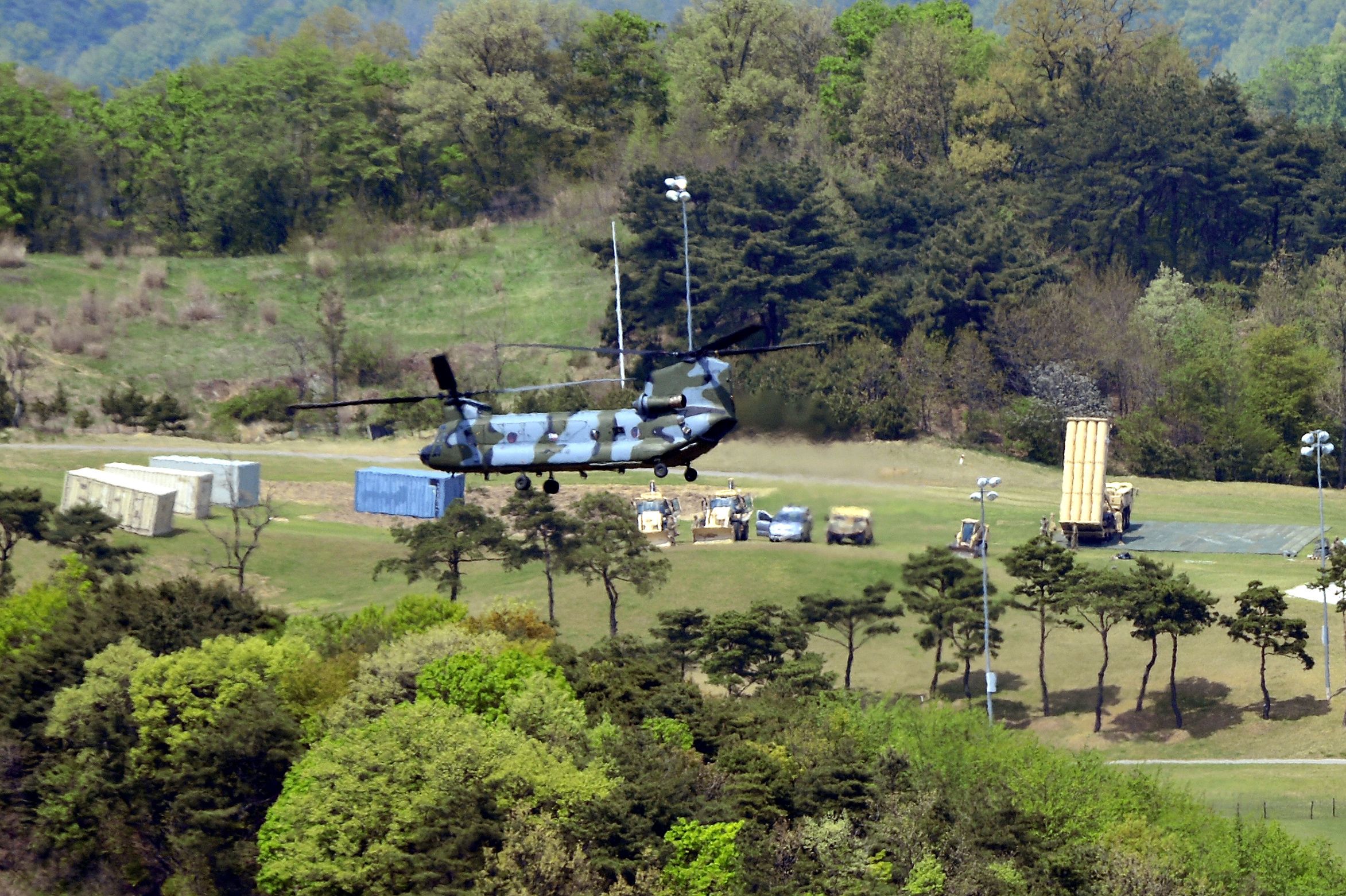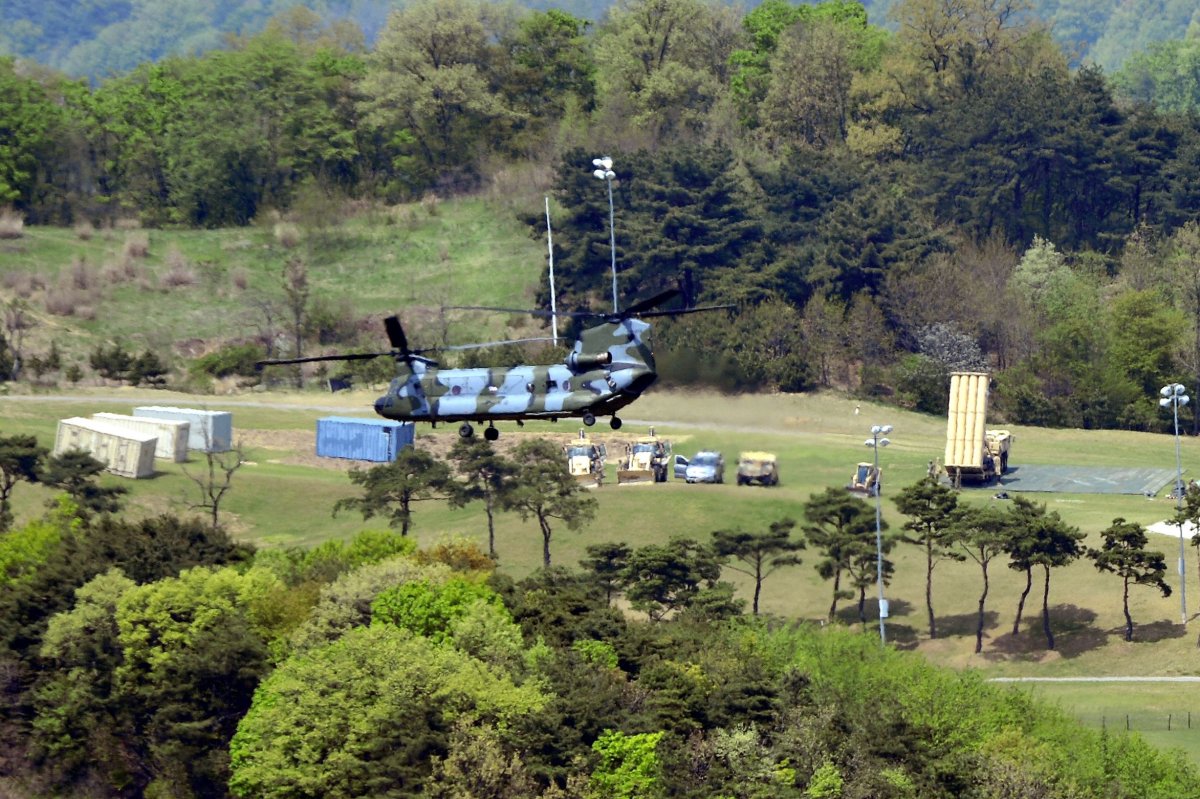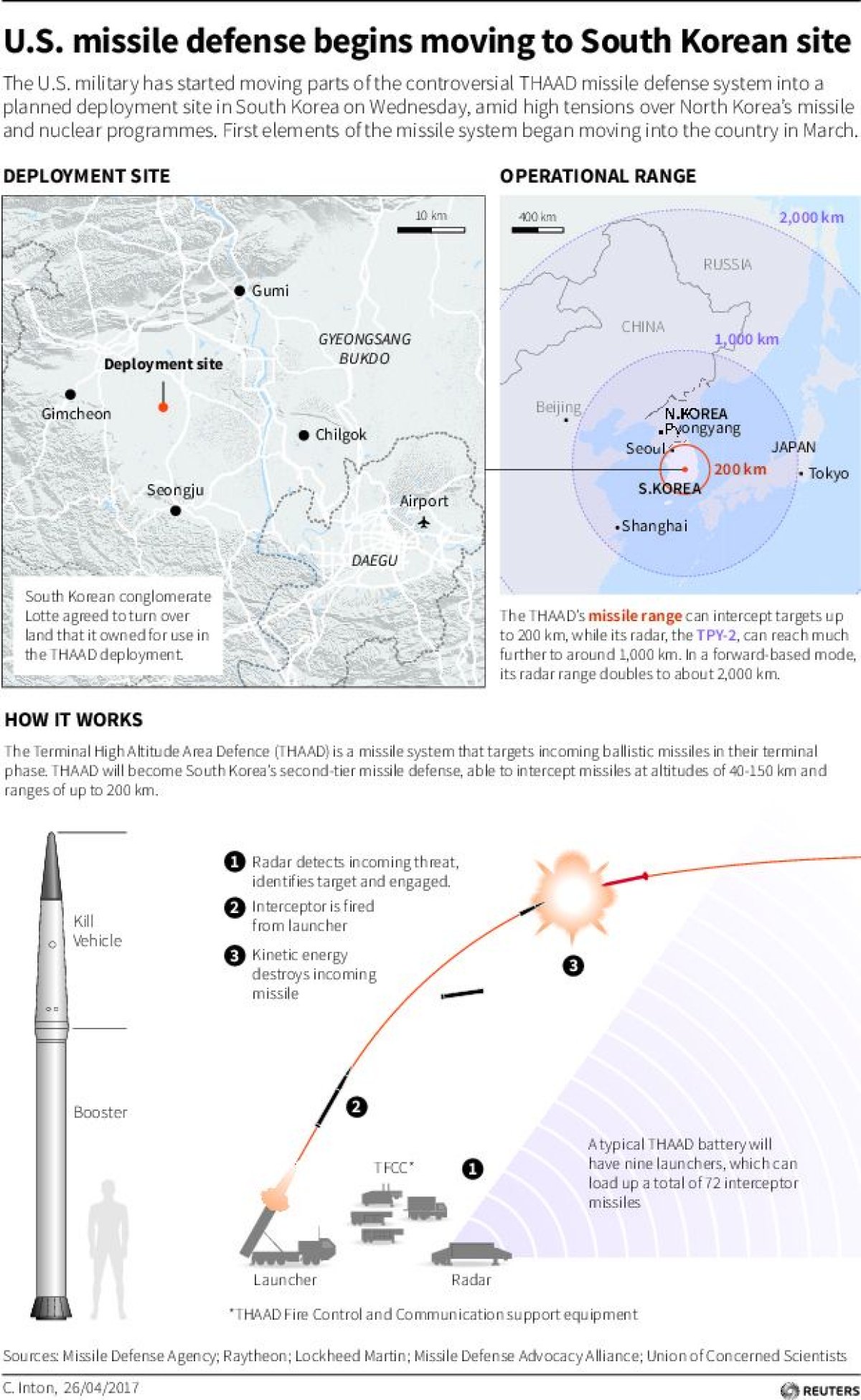
President Donald Trump said Thursday he would cancel the free trade deal between the U.S. and South Korea if Seoul did not agree to pay for the high-tech missile defense system being installed by the U.S. South Korea quickly refused to cover the billion-dollar system's costs.
In an interview with Reuters, Trump criticized the 2011 free trade deal made by his predecessor, President Barack Obama, and finalized by Trump's opponent in last year's presidential election, former Secretary of State Hillary Clinton, that allowed the Terminal High Altitude Area Defense (THAAD) system to be established for free in South Korea. The Pentagon has argued that the advanced missile defense apparatus is necessary for defending the nation against its neighboring rival, North Korea. However, Trump said "it would be appropriate" if South Korea paid the $1 billion bill and officially announced his intention to scrap the entire free trade deal if the longtime U.S. ally did not come forth with the funds.
Related: Traveling to North Korea is Still Legal for Americans, But it's Probably Not a Good Idea
"It is unacceptable, it is a horrible deal made by Hillary," Trump told Reuters. "It's a horrible deal, and we are going to renegotiate that deal or terminate it."

The next day, South Korea's defense ministry released a statement refuting Trump's comments, saying the deal between Washington and Seoul had not been altered. Seoul has been on high-alert since Trump dispatched the Navy's Carl Vinson Carrier Strike Group to the Korean Peninsula earlier this month to prevent a rumored sixth nuclear weapons test to be conducted by Pyongyang. North Korea did not conduct the test, but a failed ballistic missile launch drew condemnation from the U.N. Security Council and threats of further action by the U.S. As Trump's warships close in, South Korea will rely on the soon-to-be operational THAAD to help defend against a massive artillery strike on its major cities.
"There is no change in South Korea and the United States' position that our government provides the land and supporting facilities and the U.S. bears the cost of THAAD system's deployment, operation and maintenance," the ministry wrote, according to South Korea's official Yonhap News Agency.
Despite Trump's hardline stance against Pyongyang's nuclear threats, the Republican leader has drawn some criticism in South Korea for his administration's public gaffes amid the recent political crisis in the Asia-Pacific. When Trump first declared he was sending an "armada" to the region, observers waited expectantly for the massive naval formation to arrive. In reality, the vessels were thousands of miles away near Australia for a military exercise and spent the following days in the Indian Ocean, causing concern in South Korea over Trump's security commitments. Further frustration arose earlier this month when Trump incorrectly stated during an interview that "Korea used to be a part of China."

A number of South Koreans also have taken to the streets to protest the THAAD system, which the country's leading presidential candidate has criticized for taking place between administrations. Moon Jae-in, the favorite to replace jailed leader Park Geun-hye in this year's election, has called on Washington and Seoul to delay the THAAD deployment until the next government takes over in Seoul. The THAAD also has been criticized by China, which argues that the anti-missile system undermines its own national security. Beijing has long opposed U.S. military presence in the Korean Peninsula, but has become frustrated with Pyongyang's nuclear aspirations and has expressed a willingness to work with Washington to end the current crisis.
Trump said Thursday that a "major, major conflict" with North Korea was "absolutely" possible, but that he would seek a diplomatic solution, Reuters reported.
Uncommon Knowledge
Newsweek is committed to challenging conventional wisdom and finding connections in the search for common ground.
Newsweek is committed to challenging conventional wisdom and finding connections in the search for common ground.
About the writer
Based in his hometown of Staten Island, New York City, Tom O'Connor is an award-winning Senior Writer of Foreign Policy ... Read more
To read how Newsweek uses AI as a newsroom tool, Click here.








